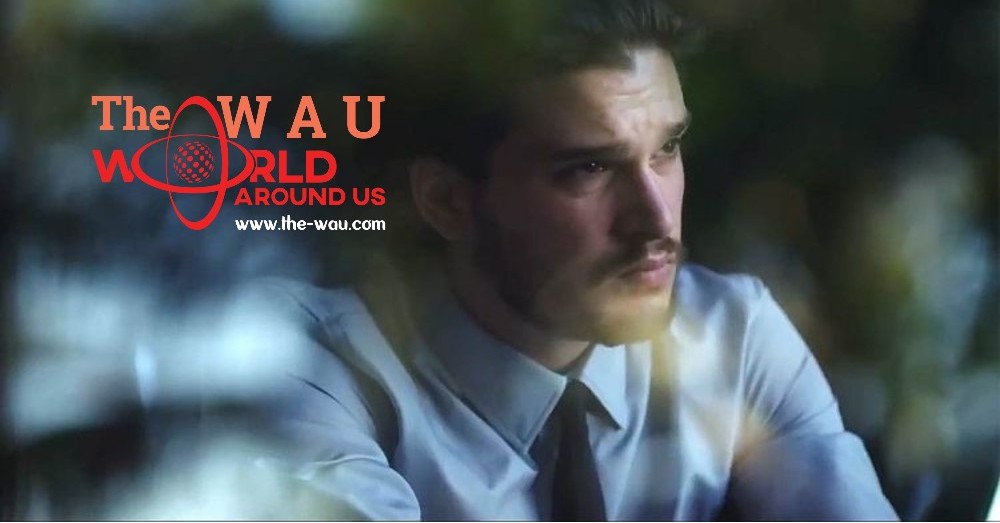Growing up in public can’t be easy. The French-Canadian filmmaker and actor Xavier Dolan noticed his first movie, “I Killed My Mother,” most reliable on the Cannes Film Festival in 2009 when he became barely 20 years antique, and he has been a fixture of the worldwide festival circuit ever since.
His seventh characteristic movie, “The Death and Life of John F. Donovan” is his English-language debut and functions a cast which includes Kit Harington, Natalie Portman, Thandie Newton, Jacob Tremblay and Susan Sarandon. An examination of fame and identity, the film is ready a doomed heartthrob TV actor (Harington) who moves up an unlikely pen buddy dating with a young boy (Tremblay) and the deep effect it has on each their lives.
Harington’s Donovan struggles with publicly acknowledging his identity as a homosexual man, which reasons his repute and profession to come to be an increasing number of painful for him.
The movie feels disjointed and made up of elements that Dolan couldn’t bring together as it shuffles between three story strands. Moments together with Portman and Tremblay as mom and son reuniting in the rain to Florence and the Machine’s model of “Stand By Me” seize the expressive emotional maximalism of Dolan’s excellent work, but the sequences with Harington specifically often feel listless and lifeless.
The movie itself looks as if an expression of some sort of growing pains, at the same time as the young director with a bit of luck works with massive-call actors. The prolific Dolan has already unveiled another movie since “John F. Donovan” premiered inside the fall of 2018, so this relative stumble can possibly be filed away as a transitional curio.
Building from the soul-rending opening cry of Adele’s “Rolling in the Deep” to the barbaric yawp of the Verve’s “Bittersweet Symphony” (with a heavy-handed assist from composer Gabriel Yared during the intervening two hours), this is ecstatically self-indulgent filmmaking. And yet, as compared with the epic strolling time of “Lawrence Anyways” or the emotionally supercharged “It’s Only the End of the World” (which this latest most intently resembles), one receives the distinct experience that it’s over even earlier than it has begun.
That could simply as without problems be stated of Hollywood superstar John F. Donovan’s tragically short lifestyles, the tabloid-geared up end of which imprinted itself on 11-year-vintage Rupert Turner (“Room” prodigy Jacob Tremblay) the manner that JFK’s assassination or the Challenger explosion did upon previous generations: It turned into the defining incident in his very own journey, and now, 11 years later, he has published a e book assembling more than 100 letters penned with the aid of the big name (played by means of “Game of Thrones” heartthrob Kit Harington, who’s difficult to just accept as much greater than what the film dismisses as an “actor du jour”).
How did Rupert come to possess any such trove of correspondence? When he turned into six, the kid wrote Donovan a fan letter (we in no way hear its contents, although you can Google to locate the letter Dolan wrote to Leonardo DiCaprio after seeing “Titanic” five times and imagine some thing similar). Against all odds — and what without a doubt would have been the advice of bull-in-a-china-save manager (Kathy Bates) — Donovan replied, hanging up an unlikely pen-buddy correspondence with the kid that by hook or by crook went unobserved by using Rupert’s mother (Natalie Portman) all those years.
But these have been no regular letters. Written through hand, in green ink, they provided a view into the tortured identification of a deeply non-public actor: Donovan, superstar of a CW-style primetime soap, was gay, which obliges him to deal with his public existence as a sort of performance, too. Does Donovan open up approximately any of this with Rupert? Dolan’s screenplay — or whatever fraction of it is represented on-screen — is maddeningly unclear about the contents of their correspondence: “I recognize your fantasies, I recognize your dreams,” writes the star, creepily, and although Rupert treats the actor’s letters like a in my view addressed It Gets Better PSA, Donovan’s experience may also as well illustrate the opposite. It’s as though Dolan wants to offer audiences the superstar role model he in no way had — and yet, the individual who embodies that isn’t Donovan however Rupert, who succeeds in doing what the celebrity never could: stay his truth.
All of this is filtered through a unusual framing device, in which a “serious” journalist (Thandie Newton) begrudgingly sits down to what she sees as a fluff-piece assignment: interviewing Rupert, now an adult and an actor in his very own right (played by means of Ben Schnetzer, who bears nearly no resemblance to Tremblay), approximately his new e-book, which she hasn’t troubled to read. Desperate for respect, Rupert parries with the reluctant reporter over the path of the interview — surely greater of a colorful, discursive monologue, wherein Rupert recounts the bullying child-actor auditions and mommy problems of what become essentially Dolan’s personal formative years — and we watch her develop ever extra impressed by way of what a profound soul he really is.
“Final question,” he says near the end, and one thinks: Wait, has she had the danger to ask any questions? “This is a tale about intolerance,” he tells the reporter, insisting that they want the equal thing: to make an “impact on the considering people.” Cinema can do that, and “Death and Life” goes as a ways as any film — except possibly “Win a Date With Tad Hamilton!” — to dramatize our formative years dream to connect with our celebrity idols. But ought to this tale truly be approximately Rupert?
Granted, Dolan stylishly interweaves scenes from Donovan’s existence, along with his faux marriage (to Emily Hampshire), failed identical-intercourse romance (with Chris Zylka), and strained relationship along with his alcoholic mom (Susan Sarandon), even imagining a paranormal stand-by myself monologue added by means of a twinkly-eyed Michael Gambon, who tells the tortured celebrity, “I observe you, and all I see is a person whose work matters to my grandson.” Where Newton’s individual were pressed to squeeze her interview in earlier than an all-crucial flight, upon hearing this, the seasoned conflict reporter opts to miss her aircraft and pay attention Rupert’s story.
Dolan writes juicy roles actors need to play, filtered thru the egotism of his very own revel in: Portman’s huge scene involves running in slow-movement to a Florence and the Machine cowl of “Stand through Me” for a rain-sopping wet reconciliation with Rupert, whilst Bates’ moment finds her lecturing Donovan on how he mistreated the poor child on country wide TV. Even Donovan can’t die without sending the kid one remaining letter — an apology, of route. Yes, audiences want to see themselves on-screen, but do they want to peer pretty so much of Dolan?
Share This Post












